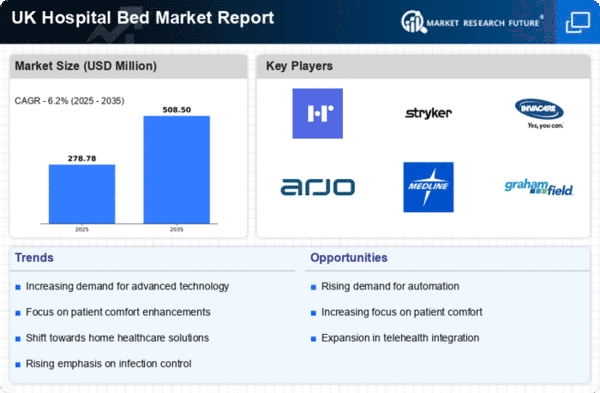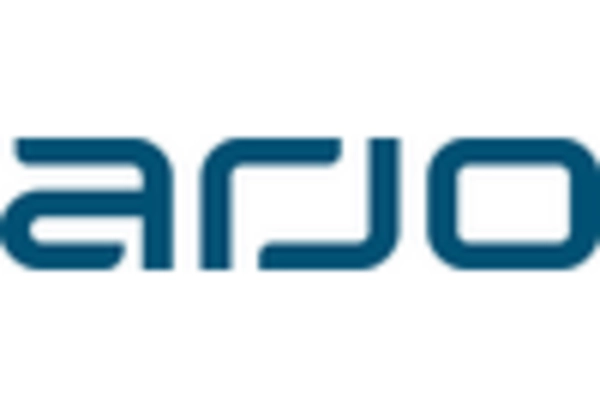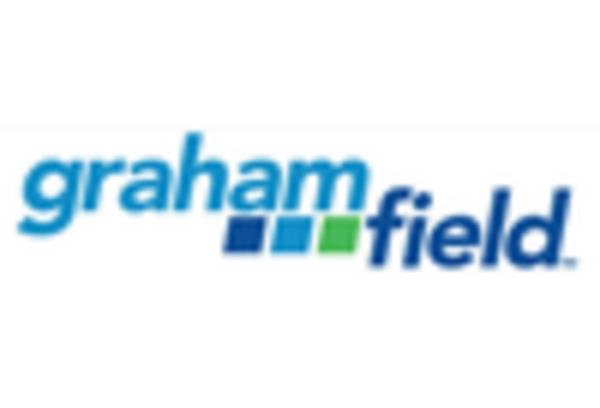Rising Focus on Infection Control
Infection control remains a critical concern within healthcare settings, influencing the hospital bed market significantly. The demand for beds that are easy to clean and designed to minimize infection risks is on the rise. Manufacturers are responding by developing hospital beds with antimicrobial surfaces and seamless designs that facilitate thorough cleaning. This trend is particularly relevant in the context of increasing awareness regarding hospital-acquired infections (HAIs), which affect a substantial number of patients annually. The market for infection control solutions in hospital beds is projected to grow, as healthcare facilities prioritize patient safety and strive to reduce HAIs, thereby driving the hospital bed market forward.
Shift Towards Home Healthcare Solutions
The hospital bed market is also being influenced by a notable shift towards home healthcare solutions. As patients increasingly prefer receiving care in the comfort of their homes, there is a growing demand for hospital beds designed for home use. This trend is supported by advancements in telehealth and remote monitoring technologies, which enable healthcare providers to offer effective care outside traditional hospital settings. The home healthcare market is expected to expand significantly, with estimates suggesting a growth rate of around 10% annually. Consequently, this shift is likely to create new opportunities within the hospital bed market, as manufacturers adapt their offerings to meet the needs of home care providers and patients.
Increasing Demand for Healthcare Services
The hospital bed market is experiencing a notable surge in demand, primarily driven by the increasing need for healthcare services across the UK. Factors such as an aging population, which is projected to rise significantly, contribute to this trend. By 2030, it is estimated that over 18% of the UK population will be aged 65 and above, necessitating more hospital beds to accommodate the growing number of patients requiring medical attention. This demographic shift is likely to place additional pressure on healthcare facilities, thereby propelling the hospital bed market forward. Furthermore, the rise in chronic diseases and the need for long-term care facilities further amplify the demand for hospital beds, indicating a robust growth trajectory for the market in the coming years.
Technological Integration in Patient Care
The integration of advanced technologies in patient care is reshaping the hospital bed market. Innovations such as smart beds equipped with monitoring systems and adjustable features are becoming increasingly prevalent. These beds not only enhance patient comfort but also improve safety and care efficiency. The market for smart hospital beds is anticipated to grow at a CAGR of around 15% over the next five years, reflecting the increasing adoption of technology in healthcare settings. Hospitals are recognizing the value of these innovations in reducing the risk of bedsores and improving patient outcomes, which could lead to a significant shift in purchasing decisions within the hospital bed market.
Government Investment in Healthcare Infrastructure
The UK government is actively investing in healthcare infrastructure, which is expected to have a profound impact on the hospital bed market. Recent budgets have allocated substantial funds towards upgrading existing hospitals and constructing new facilities, with an emphasis on improving patient care and accessibility. For instance, the NHS Long Term Plan outlines a commitment to enhance services, which includes increasing the number of hospital beds available. This investment is projected to reach approximately £20 billion by 2025, thereby creating a favorable environment for the hospital bed market. As new facilities are built and existing ones are modernized, the demand for advanced hospital beds is likely to rise, further stimulating market growth.
















